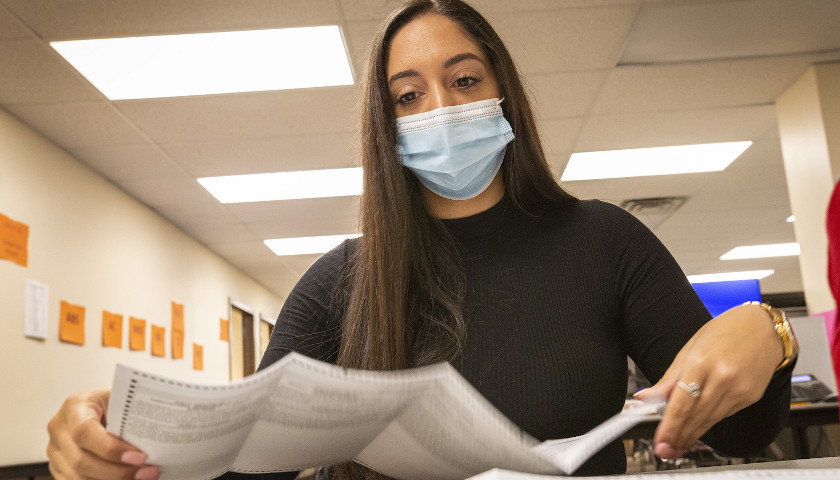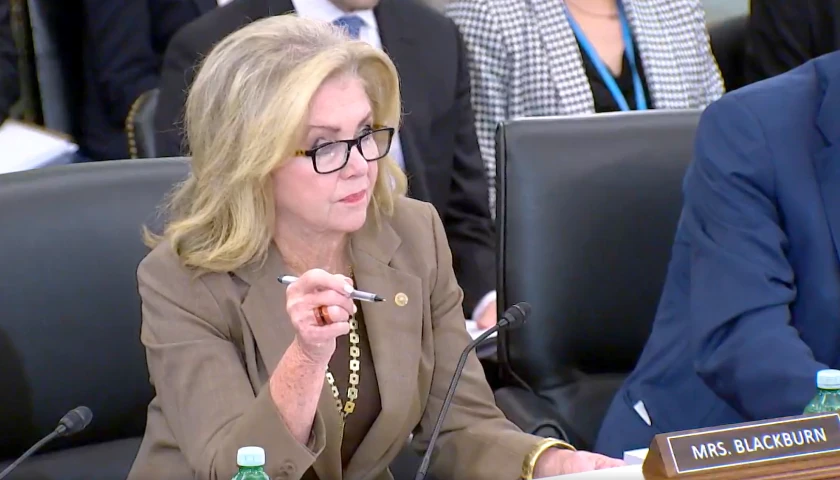In its final canvass report for the 2022 primary election, Maricopa County says it rejected 14 times more signatures than it did in the 2020 general election. This comes on the heels of Attorney General Mark Brnovich’s finding that the county’s standards for signature verification were “insufficient to guard against abuse.”
“Canvass Queen” Liz Harris, so named after conducting an 11-month long independent grassroots audit of the 2020 election in Maricopa County, told The Arizona Sun Times, “The entire voting system needs an entire overhaul. Period.”
The official Maricopa County canvass found that during the August election, 3,364 ballots were rejected for “bad signatures” out of 866,924, which is .0038 percent. In contrast, in 2020, 584 ballots were rejected for “bad signatures” out of 2,089,563 total votes, which represents a much smaller .00028 percent. This translates to 14 times more ballots rejected for “bad signatures during” the August primary.
Similarly, in this month’s primary election, 1,137 ballots – .0013 percent of total ballots tabulated – were rejected for no signatures, whereas a smaller percentage of ballots with no signatures were rejected in 2020. Only 938 were rejected, or .00044 percent of the total ballots tabulated, meaning there were three times as many votes rejected for no signature in 2022.
In Brnovich’s interim audit report released in April, discussing his findings investigating the independent ballot audit ordered by the Arizona Senate, he found that election workers only had an average of 4.6 seconds for each signature verification, which he called a serious flaw.
Due to the decrease in signature verification thresholds in Maricopa County, Brnovich warned, “the last three election cycles reflect that the number of early ballots rejected because of missing and mismatched signatures is trending down.” This took place despite significant increases in people voting. A new law implemented in 2020 requiring a 5-day cure period for rejected ballots did not explain the discrepancy, since the “dramatic decrease” also took place in 2016 to 2018.
Brnovich’s Election Integrity Unit attorney, Jen Wright, sent her own letter in May to attorneys for the county discussing the problem. “It is not clear to either lawmakers or voters how your staff and temporary employees (with limited training and who are expected to process 500 signatures each hour), can perform this task without error or fatigue, and why the percentage of rejected signatures varies from election to election,” she said. “The time your staff spends analyzing signatures does not appear sufficient given the hundreds of thousands of signatures that need to be processed in a short period.”
Brnovich accused the county of using artificial intelligence (AI) to verify signatures, something county officials denied, but one of their attorneys admitted in a letter. Wright’s letter cited internal emails from the Recorder’s office exchanged with the AI signature verification company Runbeck, discussing how Runbeck employees matched signatures from Maricopa County voters. Runbeck then assigned confidence levels to different batches of emails, she said. “It’s hard to believe human verifiers disregard batch assignments, despite Maricopa’s assertions to the contrary.”
She concluded, “Although Maricopa continues to suggest that signature verification was not done exclusively using the AI technology, it is a procedure that was integrated into Maricopa County’s signature verification process in June of 2020 without either approval from the Secretary of State or public discussion (either at the county or state level) regarding its intended use or veracity.” She cited a statement in the 2022 election plan that indicates the county intends to use AI this year as well.
Former Arizona Secretary of State Ken Bennett, who was one of the Senate’s audit team members, confirmed this with the Arizona Daily Independent. “Something happened in 2020,” he said. “They were getting behind in the Recorder’s Office and several people said the standard was relaxed to nearly nothing. These new canvass numbers seem to back that up.”
The attorney general’s office previously noted that relaxing signature verification standards does not violate the law and that the Arizona Legislature needs to pass a law addressing this. But due to House Speaker Rusty Bowers (R-Mesa) and State Senator Paul Boyer (R-Glendale) blocking election integrity bills this past legislative session, only three substantive election integrity bills were passed into law. Bowers was defeated in his race earlier this month, and Boyer decided not to run for re-election when polls showed he would lose due to angry voters.
The canvass report also showed that while about a third more Republicans than Democrats voted in the primary election – 505,266 versus 354,445 – the number of voters who cast provisional ballots in the Republican primary was more than double the number who cast provisional ballots in the Democratic primary, 885 to 317.
The canvass reported 552 ballots that were rejected since the voter wasn’t registered to vote, and 918 rejected due to ineligibility of the voter to cast a ballot in the 2022 primary election. Another 3,021 were turned in late and rejected. Finally, the report said 5,800 participated in “in-person emergency voting,” and a total of 1.12 million votes – 33 percent – were cast at a vote center or via a ballot drop box.
Joe Biden was certified the victor of Arizona’s 11 electoral college votes by a margin of 0.3 percent, or 10,457 votes.
– – –
Rachel Alexander is a reporter at The Arizona Sun Times and The Star News Network. Follow Rachel on Twitter. Email tips to [email protected].





